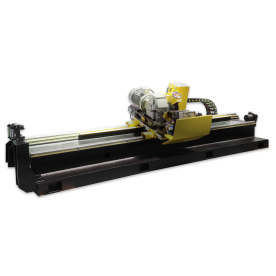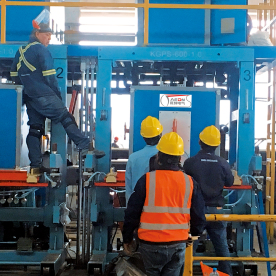[Customized Annealing Machine Spare Parts]Enhancing Efficiency and Quality with Customized Annealing Machine Spare Parts: Understanding Their Significance in Modern Manufacturing
News 2024-10-2
In the intricate landscape of modern manufacturing, the role of specialized machinery cannot be overstated. Among these machines, annealing machines stand out as pivotal equipment in various industries, including metalworking, glass production, and even in the food industry for conditioning materials. As technology evolves, the demand for higher efficiency, precision, and reliability has spurred manufacturers to look towards customized solutions. This brings us to a crucial component of these machines—Customized Annealing Machine Spare Parts.
What are Annealing Machines?
Before delving into spare parts, it is essential to understand what annealing machines do. Annealing is a heat treatment process that alters the physical and sometimes chemical properties of a material, usually metals, to increase ductility and reduce hardness. This process makes metals easier to work with, enhances their strength, and improves electrical conductivity. Annealing machines, therefore, serve as critical assets in manufacturing, ensuring that materials reach their desired properties through controlled heating and cooling processes.
The Importance of Customization
Every manufacturing process is unique, influenced by factors such as the type of material being processed, the specific production requirements, and the overall design of the manufacturing system. Generic spare parts may suffice in some cases, but they often do not meet the precise demands of a particular production environment. Customized Annealing Machine Spare Parts are designed specifically to address the unique challenges faced by different manufacturing scenarios.
1. **Tailored Performance**: Customized parts can enhance the performance of the annealing machine. For example, temperature sensors, heating elements, or cooling systems that are designed for specific sizes, shapes, or thermal properties can result in more efficient annealing cycles. This tailored approach leads to consistent product quality, reduced energy consumption, and increased operational efficiency.
2. **Extended Lifespan**: Using standard spare parts can lead to premature wear and tear if they do not match the operational specifications of the annealing machine. Customized parts minimize this risk, as they are engineered with the exact dimensions and materials required for optimal performance. This means less frequent replacements, reduced downtime, and ultimately, a lower cost of ownership.
3. **Improved Safety**: Manufacturing processes that involve high temperatures and pressure can be risky. Custom parts that fit perfectly and function reliably can significantly enhance safety. For instance, insulation materials or seals specifically designed for certain temperature ranges or chemical exposures can reduce the possibility of accidents or component failure, protecting both the machine and its operators.

Enhancing Efficiency and Quality with Customized Annealing Machine Spare Parts: Understanding Their Significance in Modern Manufacturing
5. **Cost Efficiency**: Although customized parts may have a higher initial cost compared to generic options, the long-term savings can be substantial. Fewer breakdowns and the extended life of machinery reduce maintenance costs and production interruptions. Moreover, the efficiency gained from a well-calibrated system often translates to lower operational costs, offsetting the upfront expense of customization.
The Process of Securing Customized Spare Parts

Enhancing Efficiency and Quality with Customized Annealing Machine Spare Parts: Understanding Their Significance in Modern Manufacturing
Collaboration is key in this process. Engineers and designers should be involved to ensure that the specifications for the custom parts accurately capture the operational demands. Advanced technologies such as 3D printing and computer-aided design can facilitate the rapid prototyping of these customized components, allowing manufacturers to test and iterate designs quickly.

Enhancing Efficiency and Quality with Customized Annealing Machine Spare Parts: Understanding Their Significance in Modern Manufacturing
The significance of Customized Annealing Machine Spare Parts in the manufacturing industry cannot be overstated. They not only enhance the efficiency and effectiveness of machinery but also contribute to the overall quality of the output. As manufacturers strive to meet the increasing demands for customization and efficiency, investing in tailored solutions for annealing machines will undoubtedly play a crucial role in the industry's future. Whether it’s for improved performance, longer life, enhanced safety, or innovation, customized spare parts are paving the way for a more advanced manufacturing landscape.
